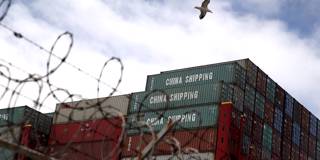US President Donald Trump's trade war with China is driven at least as much by anxiety over China's rise as by economic rationality. As the ancient Greek historian Thucydides observed – and as contemporary behavioral economists have confirmed – that kind of insecurity can have disastrous consequences.
TOKYO – The escalating trade war between the United States and China has sometimes been characterized as what game theorists would call a prisoner’s dilemma. A prisoner might benefit by informing on another, but only if the second prisoner does not also betray the first. If both inform, both lose; the best outcome for both is occurs if both remain silent. Likewise, an economy can benefit from raising tariffs on another, but only as long as the latter doesn’t retaliate; in a tit-for-tat scenario, both lose. In that case, the hope becomes that the losses force the beleaguered parties to recognize their mistake and return to cooperation.

TOKYO – The escalating trade war between the United States and China has sometimes been characterized as what game theorists would call a prisoner’s dilemma. A prisoner might benefit by informing on another, but only if the second prisoner does not also betray the first. If both inform, both lose; the best outcome for both is occurs if both remain silent. Likewise, an economy can benefit from raising tariffs on another, but only as long as the latter doesn’t retaliate; in a tit-for-tat scenario, both lose. In that case, the hope becomes that the losses force the beleaguered parties to recognize their mistake and return to cooperation.